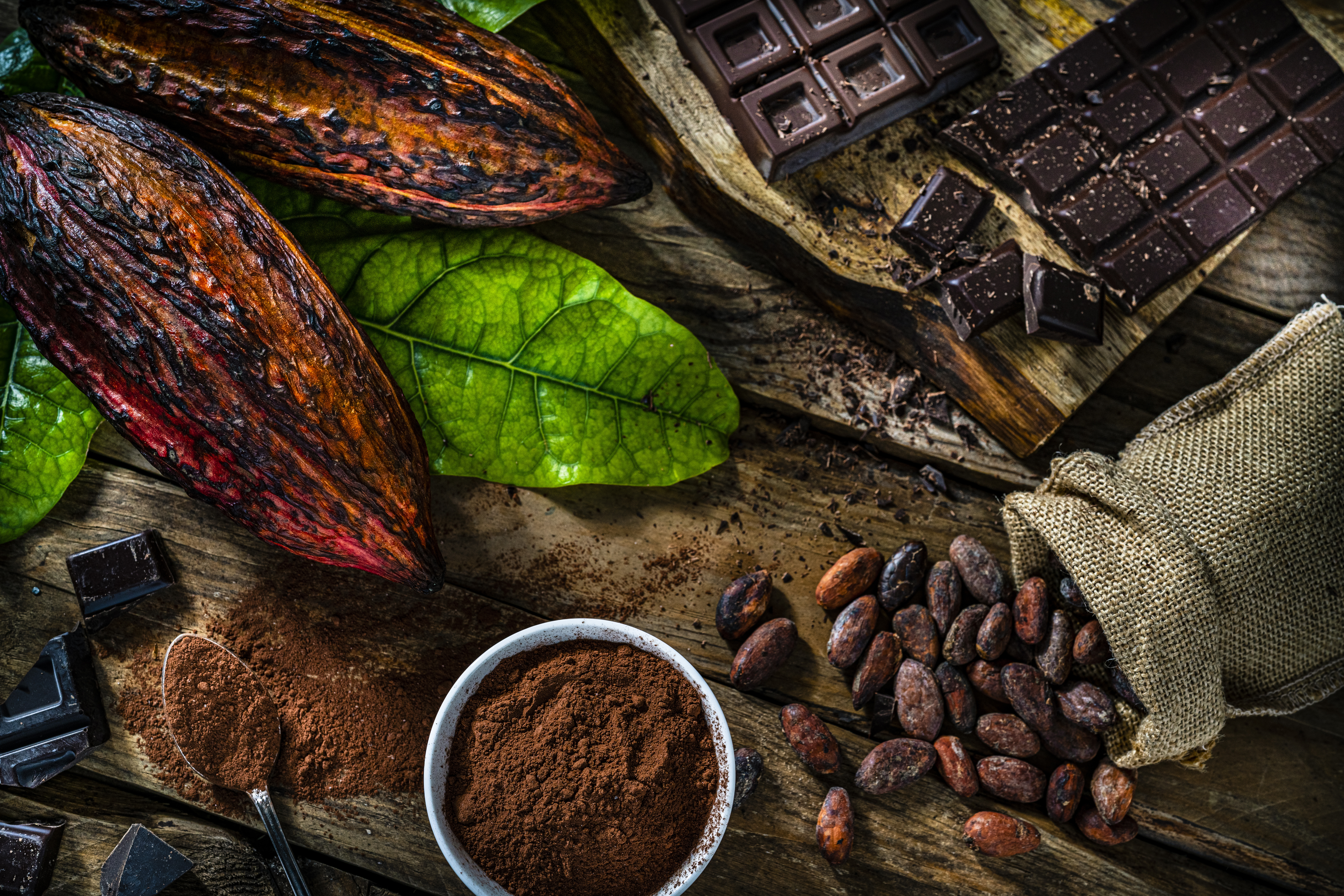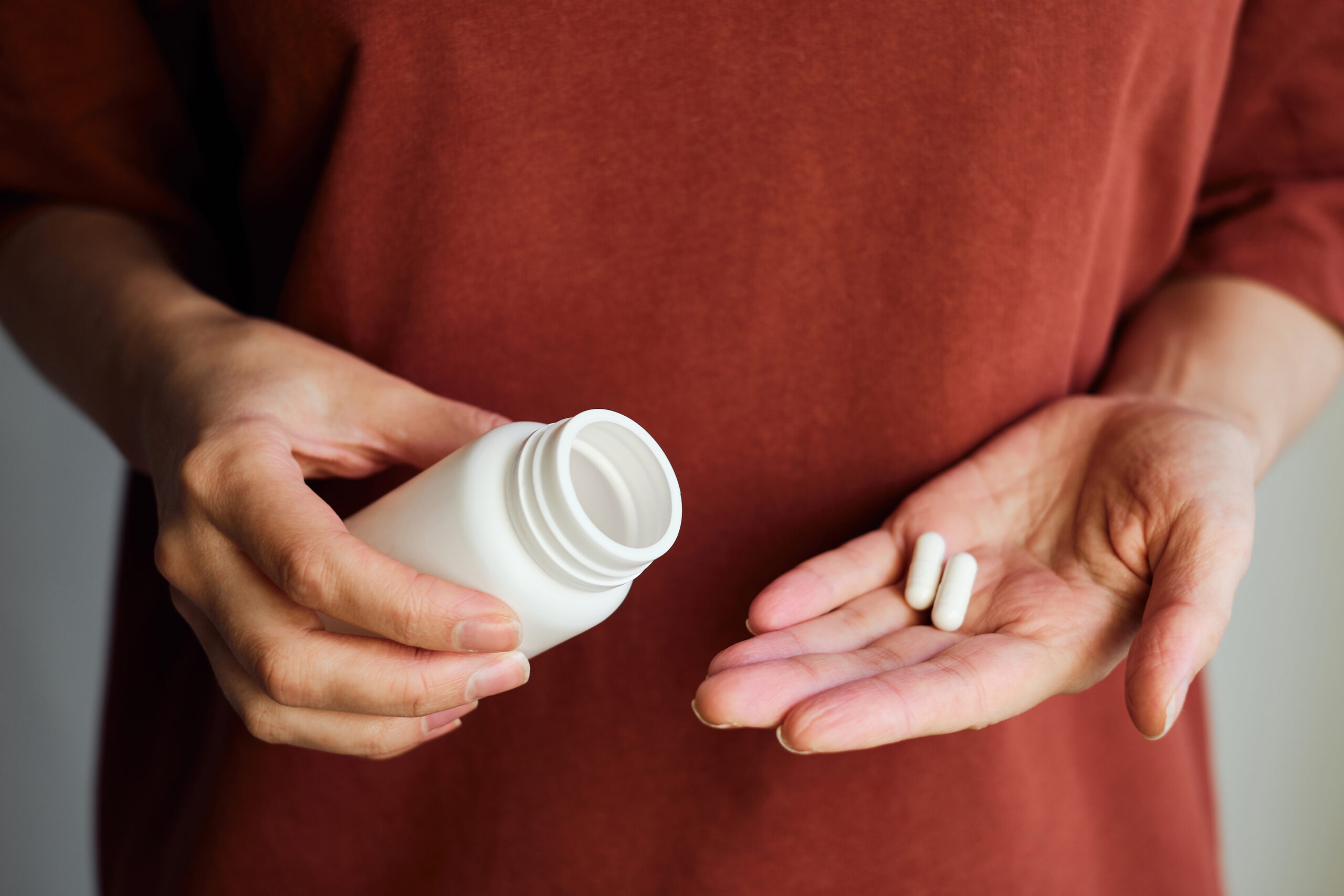Research indicates that up to 46.5% of adults worldwide are insulin-resistant.1 With this condition, your body’s cells don’t respond well to the hormone insulin, which regulates your blood-sugar levels.
Left unchecked, insulin resistance can pave the way for diabetes, heart disease, and other health issues. The good news is that you can prevent and reverse insulin resistance by maintaining stable blood-sugar levels.
How Does Blood Sugar Become Imbalanced?
Blood-sugar balance refers to maintaining stable glucose levels. (Blood sugar and glucose are used interchangeably but mean the same thing.) Several factors can disrupt this balance, including:
- Skipping meals: Not eating regular meals can lead to fluctuations in blood-sugar levels
- Chronic stress: Ongoing stress can affect your body’s ability to maintain stable blood sugar
- Poor sleep: Insufficient or poor-quality sleep can also impact blood-sugar regulation.
One of the primary causes of blood-sugar imbalance is a high-sugar-impact diet. Consuming sugary foods, including carbohydrates like pasta or wheat bread that eventually convert to sugar in your body, results in a rapid increase in glucose levels. This spike prompts your pancreas to release insulin, a hormone that quickly moves glucose into your cells for energy.
When your blood-sugar levels are consistently elevated, your body may produce more insulin to try to lower them.2 As a result, insulin may appear to work too quickly when there’s an excess of it in the bloodstream. This can lead to a crash in blood sugar that can cause symptoms like fatigue, weakness, shakiness, irritability, and intense hunger, driving cravings for the very foods that initially caused the problem.
What Is Insulin Resistance?
Insulin resistance occurs when cells in your muscles, liver, and organs become less responsive to signals from the hormone insulin.
To understand this, picture insulin as a key that unlocks the doors to your cells, allowing glucose (sugar) from your bloodstream to enter and provide energy, just like a key unlocks a door. In an ideal situation, this “key” (insulin) fits perfectly into the “lock” (cell). This perfect fit ensures that glucose can easily enter your cells, maintaining stable blood-sugar levels.
However, with insulin resistance, the locks on your cells don’t work as effectively, and the “key” (insulin) struggles to unlock them. It’s as if the key is rusty, and the door doesn’t open smoothly. Even though your body continues to produce insulin, this hormone becomes less effective at getting glucose into the cells. As a result, your blood-sugar levels remain elevated.
To compensate, your pancreas starts producing more insulin in an attempt to force those resistant cells to take in glucose. Over time, this leads to both high blood sugar and high insulin levels, which are characteristic of insulin resistance.3
The Consequences of Insulin Resistance
Insulin resistance disrupts your body’s ability to effectively regulate blood-sugar levels, impacting various metabolic processes. Some of these consequences include:
- Chronic inflammation. Insulin resistance can trigger the release of inflammatory molecules from various cells, including fat cells. Chronic inflammation can play a role in numerous diseases, including heart disease.4
- Weight gain. Studies link insulin resistance with excess body fat.5 When your cells become resistant to insulin, your body may store excess glucose as fat, particularly around the abdominal area. Insulin resistance can also increase your appetite and cravings for high-sugar-impact foods.6
- Type 2 diabetes. When your body struggles to maintain healthy blood-sugar levels, your pancreas may produce more insulin to compensate. Over time, this can lead to consistently elevated blood sugar—a key characteristic of diabetes. In fact, the most significant consequence of insulin resistance is the development of type 2 diabetes.7
- Heart disease. Insulin resistance can contribute to high blood pressure, increasing the workload on your heart and raising the risk of heart disease and stroke. It can also result in an unhealthy lipid profile, including high cholesterol and triglyceride levels.8
- Cognitive decline. Insulin resistance can impact the health of blood vessels. Impaired blood-vessel function can reduce blood flow and oxygen delivery to brain cells, potentially contributing to cognitive decline and neurodegeneration.9
7 Ways to Balance Blood Sugar and Reverse Insulin Resistance
Maintaining stable blood-sugar levels is crucial for overall well-being, providing you with consistent energy, a balanced mood, and improved focus. When your blood sugar remains steady, your body efficiently utilizes glucose for both physical and mental functions throughout the day.
Insulin sensitivity is the opposite of insulin resistance. When you’re sensitive to insulin’s effects, your cells respond well to this hormone. They readily absorb and utilize glucose from the bloodstream in response to insulin signals, resulting in stable blood-sugar levels and the associated benefits.
Here are seven ways to maintain steady blood sugar, reverse insulin resistance, and create insulin sensitivity.
1. Eat by the Plate
Making sure every meal (including your loaded smoothie) has protein, fiber, and healthy fats is your ticket to maintaining blood-sugar balance. Eating protein first helps trigger glucagon, a hormone that releases glucose from the liver and stabilizes blood sugar.10 Protein is highly satiating, meaning it helps you feel full and satisfied after a meal.
A protein-first approach means you get 30-50 grams of protein at every meal. Don’t guess how much protein you’re getting. My Protein Cheat Sheet provides a list of foods containing 30-60 grams of protein to make it super easy, and you can download it for free.
Combine optimal protein with fiber, which slows digestion and sugar release into your bloodstream, preventing sudden spikes. Fiber also keeps you full, supports gut health, and helps manage inflammation.11
Healthy fats, like those in omega-3-rich foods, also support blood-sugar balance. They improve insulin sensitivity and prevent blood sugar spikes. Omega-3s have anti-inflammatory properties, which are vital for supporting insulin sensitivity.12
2. Stay Hydrated
Your body continually loses fluids through various processes, such as sweating, sleeping, and during illness. Staying well-hydrated helps keep your blood from becoming too concentrated, maintaining stable blood-sugar levels.13 Your body can misinterpret dehydration as hunger, triggering snacking and cravings for sugary foods that can further increase blood-sugar levels.
Sometimes, water isn’t enough to maintain healthy hydration levels; it’s also crucial to maintain a balance of electrolytes. They are vital for a range of functions, from muscle contractions to transmitting nerve impulses. When you become dehydrated, not only do you lose water, but your electrolyte balance can also be thrown off, leading to complications like muscle cramps, dizziness, and irregular heart rhythms.
An electrolyte formula can replenish essential minerals to optimize hydration.
ElectroReplenish provides key electrolytes like potassium, sodium, chloride, and magnesium for optimal hydration. We’ve added D-ribose for post-exercise recovery and energy, taurine to help regulate electrolytes, and vitamin C, quercetin, and citrus bioflavonoids for optimal support.*
3. Incorporate Strength Training
As you age, you naturally lose muscle mass, a condition known as sarcopenia. Strength training improves how your muscles use glucose and enhances insulin’s effectiveness.14
Consistently building muscle can also help regulate hormones, including insulin and your stress hormone, cortisol. Imbalances in these hormones can contribute to insulin resistance.15
4. Manage Stress
Chronic stress triggers the release of stress hormones, especially cortisol, from your adrenal glands. Cortisol boosts blood-sugar levels for quick energy during perceived threats. This temporary blood-sugar spike signals your pancreas releases more insulin.
In the short term, this can be healthy. Constantly elevated cortisol levels, however, can lead to insulin resistance.16 That’s because your cells become less responsive to insulin signals, requiring higher insulin levels to get glucose into cells.
Techniques like meditation, yoga, deep breathing exercises, tapping, and mindfulness can help you manage stress. Find something that works for you and do it regularly.
A positive mindset can help manage stress, sleep better, create a happier life, and more. In Mindset Mastery: 20 Practices for Power and Purpose, you’ll learn how to incorporate mindset-shifting moments into your daily life. Get your FREE guide here.
5. Prioritize Quality Sleep
Research shows that just one night of poor sleep can make you insulin resistant—and this study was done in otherwise-healthy young men and women!17
When you don’t get enough sleep, your cells become less responsive to insulin’s signals. Sleep deprivation can also increase cortisol. Elevated cortisol levels can interfere with insulin’s actions, making it more challenging for your cells to absorb glucose from the bloodstream.18
Aim for seven to nine hours of quality, uninterrupted sleep every night. If you’re having trouble falling or staying asleep, these strategies can help you get better shuteye.
We’ve bundled 3 effective supplements (Sleep Candy™, Magnesium Body Calm, and All-In-One Shake) into our Optimal Sleep Kit. Together, they help you fall asleep faster, stay asleep through the night, and wake up feeling well-rested.*
6. Get the Right Nutrient Support
A few well-chosen supplements can complement your efforts to balance blood sugar and reverse insulin resistance. These are three of my favorites:
- Berberine: Berberine is a natural compound that can help support blood-sugar balance by enhancing insulin sensitivity so your cells use glucose better.19
- Magnesium: This essential mineral plays a crucial role in over 300 enzymatic reactions, including its role in assisting insulin in transporting glucose into cells. Maintaining adequate magnesium levels can significantly enhance insulin sensitivity, helping your body process glucose more efficiently.20
- Omega-3 Fatty Acids: Omega-3 fatty acids, particularly EPA and DHA, can enhance insulin sensitivity and reduce the risk of type 2 diabetes.21 They achieve this by reducing chronic inflammation and increasing glucose uptake by muscle cells.
7. Monitor Blood-Sugar Levels
Regularly checking your blood sugar can help you maintain stable levels. One highly effective method is using a continuous glucose monitor (CGM). CGMs provide real-time insights into how your body responds to specific foods, so you can:
- Pinpoint which foods cause spikes or crashes in your blood sugar levels, empowering you to make informed dietary choices.
- Monitor the impact of physical activity on your glucose levels, helping you optimize your exercise routine for better blood sugar control.
- Understand how stress influences your blood sugar, allowing you to manage stress more effectively and its impact on your health.
Regular monitoring also allows you to catch blood sugar fluctuations early, preventing them from becoming more severe. Tracking your progress can also keep you motivated, reinforce healthy habits, and inspire you to stay committed to your goals.
Theia Health developed a biosensor tracking system incorporating real-time data tracking for continuous glucose monitoring. Learn more about their CGM here.
Break Free of Sugar Addiction to Steady Blood-Sugar Levels
A high-sugar-impact diet is a big driver of blood-sugar imbalances, eventually leading to insulin resistance.
Breaking free from sugar addiction and reducing sugar intake allows your body to regulate glucose more effectively. As a result, you have steady energy levels, mood, and focus throughout the day.
Taming your sweet tooth is hard, and trying to eliminate it all at once is a recipe for disaster. I’ve found a saner solution. My Sugar Impact Diet provides everything you need to gradually, gently eliminate sugar (including sneaky sugars that sabotage your success).
References:
- Fahed M, Abou Jaoudeh MG, Merhi S, Mosleh JMB, Ghadieh R, Al Hayek S, El Hayek Fares JE. Evaluation of risk factors for insulin resistance: a cross-sectional study among employees at a private university in Lebanon. BMC Endocr Disord. 2020 Jun 10;20(1):85. doi: 10.1186/s12902-020-00558-9. PMID: 32522257; PMCID: PMC7288486.
- Centers for Disease Control and Prevention: Insulin Resistance and Diabetes
- Bowden, Jonny; Sears, Barry; Cole, Will. Living Low Carb: Revised & Updated Edition (p. 97). Union Square & Co.. Kindle Edition.
- Kosmas CE, Bousvarou MD, Kostara CE, Papakonstantinou EJ, Salamou E, Guzman E. Insulin resistance and cardiovascular disease. J Int Med Res. 2023 Mar;51(3):3000605231164548. doi: 10.1177/03000605231164548. PMID: 36994866; PMCID: PMC10069006.
- Freeman AM, Acevedo LA, Pennings N. Insulin Resistance. 2023 Aug 17. In: StatPearls [Internet]. Treasure Island (FL): StatPearls Publishing; 2023 Jan–. PMID: 29939616.
- Cleveland Clinic: Insulin Resistance
- Freeman AM, Acevedo LA, Pennings N. Insulin Resistance. 2023 Aug 17. In: StatPearls [Internet]. Treasure Island (FL): StatPearls Publishing; 2023 Jan–. PMID: 29939616.
- Ginsberg HN. Insulin resistance and cardiovascular disease. J Clin Invest. 2000 Aug;106(4):453-8. doi: 10.1172/JCI10762. PMID: 10953019; PMCID: PMC380256.
- Arnold SE, Arvanitakis Z, Macauley-Rambach SL, Koenig AM, Wang HY, Ahima RS, Craft S, Gandy S, Buettner C, Stoeckel LE, Holtzman DM, Nathan DM. Brain insulin resistance in type 2 diabetes and Alzheimer disease: concepts and conundrums. Nat Rev Neurol. 2018 Mar;14(3):168-181. doi: 10.1038/nrneurol.2017.185. Epub 2018 Jan 29. PMID: 29377010; PMCID: PMC6098968.
- Rix I, Nexøe-Larsen C, Bergmann NC, et al. Glucagon Physiology. [Updated 2019 Jul 16]. In: Feingold KR, Anawalt B, Blackman MR, et al., editors. Endotext [Internet]. South Dartmouth (MA): MDText.com, Inc.; 2000-. Available from: https://www.ncbi.nlm.nih.gov/books/NBK279127/
- Lepretti M, Martucciello S, Burgos Aceves MA, Putti R, Lionetti L. Omega-3 Fatty Acids and Insulin Resistance: Focus on the Regulation of Mitochondria and Endoplasmic Reticulum Stress. Nutrients. 2018 Mar 14;10(3):350. doi: 10.3390/nu10030350. PMID: 29538286; PMCID: PMC5872768.
- Vanhaecke T, Perrier ET, Melander O. A Journey through the Early Evidence Linking Hydration to Metabolic Health. Ann Nutr Metab. 2020;76 Suppl 1:4-9. doi: 10.1159/000515021. Epub 2021 Mar 26. PMID: 33774620.
- Kirwan JP, Sacks J, Nieuwoudt S. The essential role of exercise in the management of type 2 diabetes. Cleve Clin J Med. 2017 Jul;84(7 Suppl 1):S15-S21. doi: 10.3949/ccjm.84.s1.03. PMID: 28708479; PMCID: PMC5846677.
- Cleveland Clinic: Insulin Resistance
- Adam TC, Hasson RE, Ventura EE, Toledo-Corral C, Le KA, Mahurkar S, Lane CJ, Weigensberg MJ, Goran MI. Cortisol is negatively associated with insulin sensitivity in overweight Latino youth. J Clin Endocrinol Metab. 2010 Oct;95(10):4729-35. doi: 10.1210/jc.2010-0322. Epub 2010 Jul 21. PMID: 20660036; PMCID: PMC3050109.
- Donga E, van Dijk M, van Dijk JG, Biermasz NR, Lammers GJ, van Kralingen KW, Corssmit EP, Romijn JA. A single night of partial sleep deprivation induces insulin resistance in multiple metabolic pathways in healthy subjects. J Clin Endocrinol Metab. 2010 Jun;95(6):2963-8. doi: 10.1210/jc.2009-2430. Epub 2010 Apr 6. PMID: 20371664.
- Cleveland Clinic: Insulin Resistance: What It Is, Causes, Symptoms & Treatment
- WebMD: Health Benefits of Berberine
- Liu H, Li N, Jin M, Miao X, Zhang X, Zhong W. Magnesium supplementation enhances insulin sensitivity and decreases insulin resistance in diabetic rats. Iran J Basic Med Sci. 2020 Aug;23(8):990-998. doi: 10.22038/ijbms.2020.40859.9650. PMID: 32952944; PMCID: PMC7478262.
- Albert BB, Derraik JG, Brennan CM, Biggs JB, Smith GC, Garg ML, Cameron-Smith D, Hofman PL, Cutfield WS. Higher omega-3 index is associated with increased insulin sensitivity and more favourable metabolic profile in middle-aged overweight men. Sci Rep. 2014 Oct 21;4:6697. doi: 10.1038/srep06697. PMID: 25331725; PMCID: PMC5381193.
*These statements have not been evaluated by the Food & Drug Administration. Products mentioned are not intended to diagnose, treat, cure, or prevent any disease. The views in this blog by JJ Virgin should never be used as a substitute for professional medical advice. Please work with a healthcare practitioner concerning any medical problem or concern.







